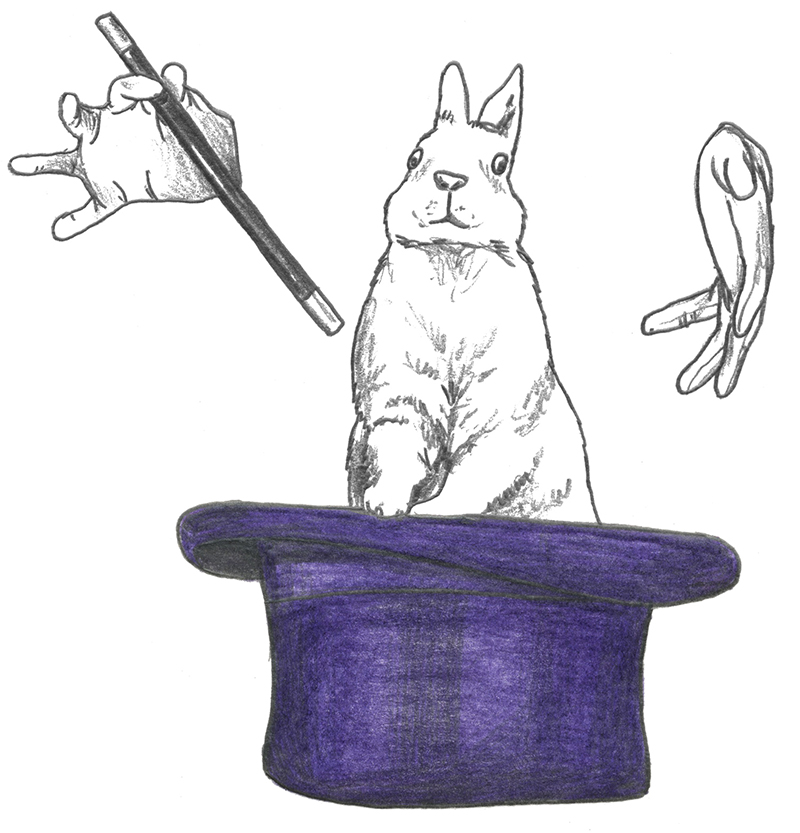In his popular first-year foundations course, the Psychology of Magic, Dirk Bernhardt-Walther reveals the secrets behind magicians’ tricks as a way of teaching students about the human mind and the fallibility of perception. The associate professor of psychology draws on disappearing acts and other illusions to explain how magicians take advantage of human misjudgment and perceptual gaps to wow audiences. Here, he explains three of their techniques:
A Bug in the Eye
To make objects disappear, magicians exploit the fact that the human eye has a limited range of resolving luminance contrast: it has trouble seeing a dark object against a black background – especially with bright stage lights nearby.
This is why magicians often perform using a black table or backdrop. Objects such as coins or cards painted black on one side can be made to appear, levitate or disappear, depending which side of the object is facing the audience.
Telling Stories
Magicians often narrate what’s happening on stage to plant an idea or memory in the audience to distract them from what’s actually occurring. In this way, the magician can convince participants that, for example, a deck of cards has already been shuffled when, in fact, it hasn’t. This aspect of psychology is important, Bernhardt-Walther says, when considering the reliability of eyewitness testimony and how police officers interview witnesses.
Is It Truly a Choice?
Magicians also give audiences the illusion of free will. In a card trick, for example, a participant may believe they are free to pick any card when in fact the magician – perhaps switching out a regular deck for a deck with only one card – has actually “forced” the audience member to take a certain card. Bernhardt-Walther says the class discussion around free will is typically lively, covering everything from religious beliefs to criminal defence.
Recent Posts
People Worry That AI Will Replace Workers. But It Could Make Some More Productive
These scholars say artificial intelligence could help reduce income inequality
A Sentinel for Global Health
AI is promising a better – and faster – way to monitor the world for emerging medical threats
The Age of Deception
AI is generating a disinformation arms race. The window to stop it may be closing






2 Responses to “ Sleight of Mind ”
Great article. Misdirection and giving the illusion of free will are also common practice today for charlatans, narcissists and gaslighters. I wonder if these topics were touched on during the discussion on free will?
Hi Matthew - great question. Yes, we discuss the consequences of these phenomena beyond their applications to magic. For instance, we talk about "psychic reading" and mentalism. We discuss how false memories can be planted, e.g., by using leading questions in interrogations. In the end, many forms of stage magic are benign forms of gaslighting. Typically, students are quite interested in applying these newly found insights to their own lives and society more generally.